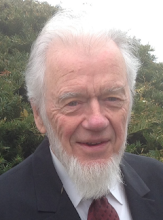A good friend recently wrote, “My usual optimism is fading.” I responded, “I am sorry to hear that your optimism is waning—but that is not necessarily a bad thing, for it is better to be realistic than optimistic. And don’t give up hope; there is a difference between hope and optimism.”
So, what
is that difference, and can a person actually be hopeful but not optimistic?
Defining
Terms
Some definitions
of optimism and hope sound as if they are synonyms. Here is the definition from Dictionary.com for optimism: “a disposition
or tendency to look on the more favorable side of events or conditions and to
expect the most favorable outcome.”
By contrast, hope means to work for and to wait
for something with the confident expectation and anticipation that it will at
some point, sooner or later, be fulfilled.
Optimism is an aspect of a person’s
disposition or temperament. People with a sunny temperament are usually
optimists, people with dark dispositions are mostly pessimists.
Hope, though, is a theological virtue. As Jim
Wallis writes in his 2019 book Christ in Crisis, hope “is not simply a feeling, or a mood . . . . It is a choice, a
decision, an action based on faith. . . . Hope is the engine of change. Hope is
the energy of transformation” (p. 264).
Later in
that book, Wallis reiterates what he has often said: “Hope means believing in
spite of the evidence, then watching the evidence change” (p. 281).
And here are wise words from an Irish poet:
So, yes, a
person can be hopeful even if he/she is not optimistic. Thus, I like what Black
theologian/philosopher Cornel West tweeted back in January 2013: “I cannot be
optimistic but I am a prisoner of hope.”
Emphasizing
Action
A key
difference between optimism and hope, as defined/described above, is this: optimism doesn’t demand anything of us (everything is going to be all
right!), but hope entails effort as we endeavor to actualize that for which we
hope.
Like the Kingdom of God, hope also demands
that we work for what we hope for, knowing that it might well be a long time
before that hope will be realized.
The New Testament says that “now faith,
hope, and love abide, these three; and the greatest of these is love” (1
Cor. 13:13, NRSV). But faith and hope are a close third and second.
Further, the New Testament also declares that “faith
without actions is dead” (James 2:26, Common English Bible). But isn’t it true
to say that not just faith, but both love and hope without actions are also dead?
Love is not simply a feeling or an emotion. It
is often said that "love is a verb,” and I believe that is true. Love is
something that is best expressed not in words, but in action.
And so it is with hope.
Assessing the Future
So, linking this to my
10/25 post, what about the future of this country under the current
President and Congress?
To be honest, I am not very optimistic about
this year’s pending legislation or about the elections of 2022 or 2024. But I
am hopeful for the future. If this year’s legislation doesn’t turn out well, I
will do what little I can to help elect better members of Congress in 2022.
And if the elections of 2022 turn out to be a
disappointment, again I will do what little I can to elect the best President
and Congress possible in 2024.
If the latter is also a disappointment, then I
will begin working for 2028 (although there may be little I can do, for that is
the year I turn 90, if I make it that far).
Regardless of what happens, though, I will continue to be hopeful, believing that things will get better later, if not sooner. That is because I trust in the “God of hope.” Accordingly, these words from Romans 15:13 (NIV) is my prayer for all of you.
 |






